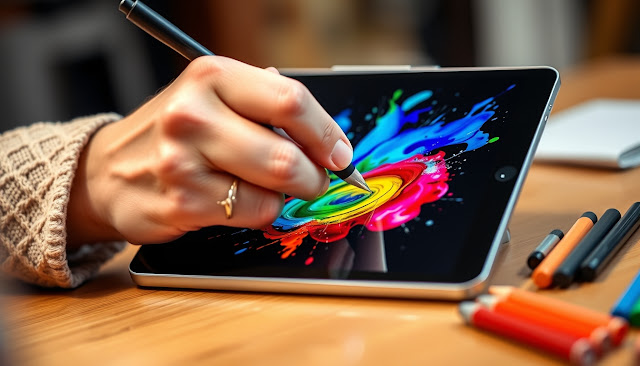In a bold move that has garnered widespread attention, Procreate, the popular digital illustration app, has announced it will not incorporate generative AI into its products.
CEO James Cuda has been vocal about his disdain for the technology, citing its negative impact on human creativity and the art industry as a whole.
Key Takeaways
- Procreate vows to never integrate generative AI into its products.
- CEO James Cuda criticises the technology for harming human creativity.
- The decision has received mixed reactions from the creative community.
Procreate's Firm Stance
Procreate, known for its user-friendly digital illustration tools, has taken a firm stance against the integration of generative AI. In a video statement, CEO James Cuda did not hold back his feelings, stating, "I really f***ing hate generative AI. I don't like what's happening in the industry, and I don't like what it's doing to artists." He emphasised that Procreate's products are designed with the idea that a human will be creating something, not a machine.
The Industry's Reaction
The announcement has sparked a variety of reactions within the creative community. Many digital artists and illustrators have praised Procreate for its commitment to preserving human creativity. "I've truly never been more proud to utilise your products," one artist commented on social media. However, some critics argue that avoiding AI could make art less accessible for people without artistic skills and could put Procreate at a competitive disadvantage.
The Ethical Debate
Procreate's decision comes amidst a broader ethical debate surrounding generative AI. Many creatives are concerned that AI models are often trained on artists' work without permission or compensation, which they see as a form of intellectual property theft. Procreate has echoed these concerns, stating that generative AI is "built on a foundation of theft" and is steering the industry toward a "barren future."
Competitors' Approach
While Procreate has taken a strong anti-AI stance, its competitors are moving in the opposite direction. Adobe, for example, has integrated generative AI features into its creative apps through its Firefly models and services. Canva has also introduced AI-powered tools through its Magic Studio. Despite this, Procreate believes that its path, though less travelled, is more exciting and fruitful for its community.
Future Implications
The long-term implications of Procreate's decision remain to be seen. CEO James Cuda acknowledged the uncertainty but expressed confidence in the company's approach. "We don't exactly know where this story's gonna go, or how it ends, but we believe that we're on the right path to supporting human creativity," he said. As the debate over AI continues, Procreate's stance serves as a significant marker in the ongoing conversation about the role of technology in art.
Sources
- Why the Popular Software Company Procreate Is Swearing Off Generative AI | Inc.com, Inc.com.
- 'I really f***ing hate it': Procreate CEO slams use of generative AI, says 'AI not our future' - Times of India, Times of India.
- Procreate CEO swears off generative AI | Fortune, Fortune.
- Adobe rival Procreate bets against gen AI to support human creativity, Cointelegraph.
- Procreate Takes Anti-AI Stance, Won't Introduce Generative Tools | Extremetech, ExtremeTech.


